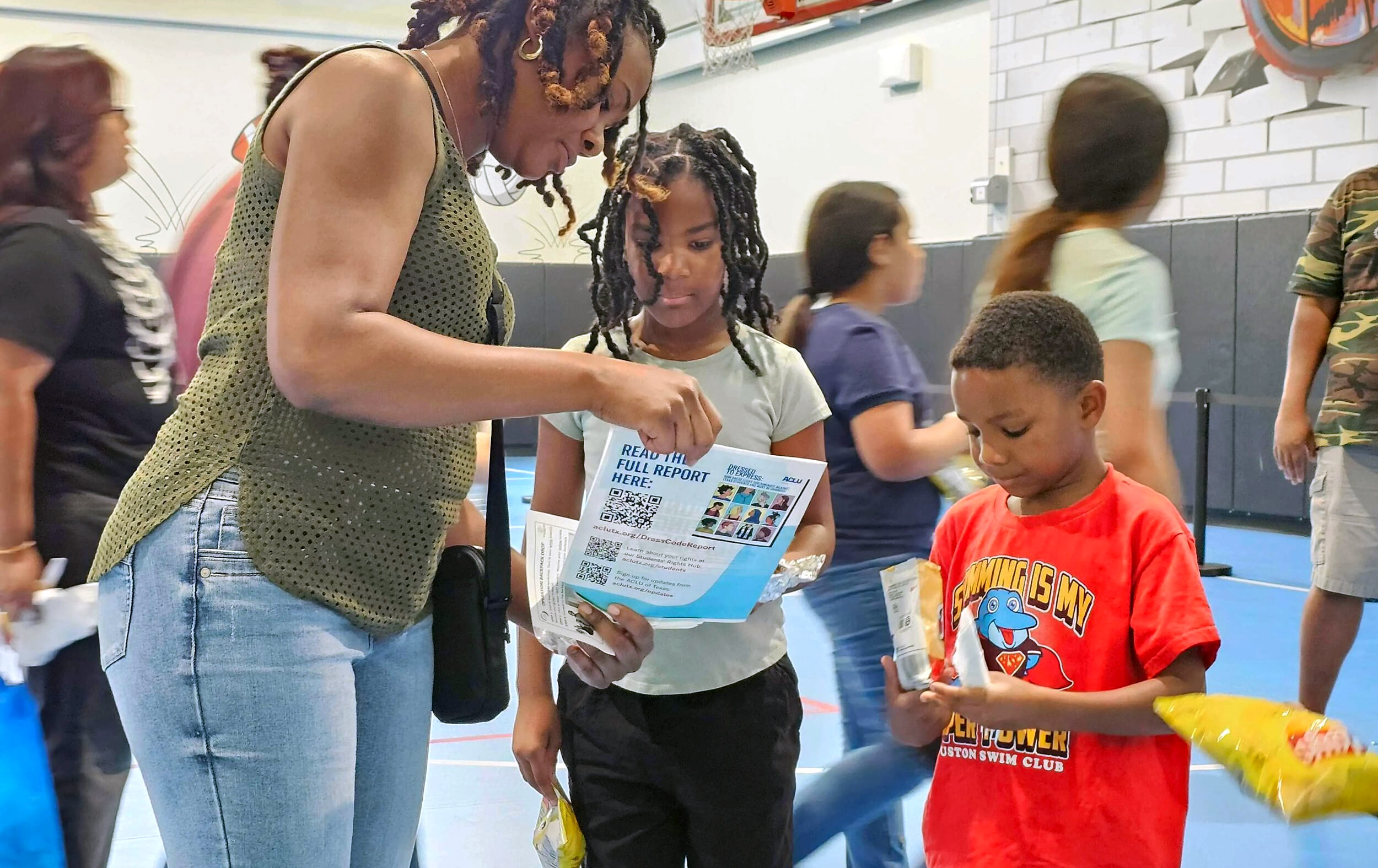Texas students deserve better than censorship, discrimination, and bullying from state politicians and special interest groups.
The heart of our education system is its students. Yet, Texas K-12 students in public schools face unprecedented attacks on their freedom to express themselves and learn.
A safe and welcoming school environment isn’t just a goal — it’s a right.
Learn more below about four civil rights issues facing students as they return to school this year. And visit our Students' Rights Hub for resources and to take action.
1. Anti-LGBTQIA+ Policies
State and school officials are threatening LGBTQIA+ students’ education and safety by outing students to their parents, passing bathroom bans, and excluding LGBTQIA+ students from extracurricular activities. Gov. Greg Abbott has even suggested wanting to ban transgender teachers. In a 2023 study, the Trevor Project reported that 71% of LGBTQIA+ youth said their mental health was negatively impacted by debates and laws that restrict their rights.
Sumya Paruchuri (they/them), a senior at Conroe Independent School District, explains: “When schools pass anti-LGBTQIA+ policies banning books with queer representation or prohibiting the use of preferred names and pronouns, queer students don’t feel welcome and are discouraged from coming to school. School should be a safe place where students can freely learn. Districts need to focus on providing the best education for all their students and not passing policies that cause harm.”
2. Classroom Censorship
Classroom censorship continues to rise in Texas. The state banned 625 books last year, the second most in the country. In at least one extreme case, a law enforcement officer tried to jail librarians.
In the words of Selina Peña (she/her), a high school English teacher at Laredo Independent School District: “Classroom censorship stifles diverse stories, leaving students with a fragmented understanding of the world and themselves. It silences voices that challenge, inspire, and teach, preventing students from forming a more just and empathetic future.”
3. CROWN Act and Dress Codes
The Texas CROWN Act, which stands for Creating a Respectful and Open World for Natural Hair, was signed into law last year. It prohibits schools from discriminating against hair texture or protective hairstyles commonly or historically associated with race, such as afros, cornrows, braids, or locs. In July, the ACLU of Texas sent letters to 51 school districts across the state alerting them that their dress code policies likely violate the CROWN Act. Since receiving the letter, at least 11 districts have committed to updating their rules to be in compliance with the law.
“The passage of the CROWN Act is more than just a legal victory — it’s a declaration that Black students deserve to show up fully as ourselves in every space, including schools,” says Da'Taeveyon Daniels (he/him), a senior at Fort Stockton Independent School District. “Whether I choose to wear my hair in cornrows or let my afro take center stage, it’s a quintessential part of my identity and culture. This law ensures that we can embrace our heritage without fear of discrimination, empowering us to be our authentic selves in an environment that values and respects our diversity.”
4. State-Sponsored Religion
Texas politicians are trying to force state-sponsored religion into public schools through bills like Senate Bill 763, which allows districts to hire or accept as volunteers unlicensed chaplains to offer counseling services to children without parental consent. The legislature also tried to pass Senate Bill 1515, which would have required teachers to display the Ten Commandments in the classroom. While S.B. 1515 ultimately stalled before becoming law, Lt. Gov. Dan Patrick has promised to bring the bill back.
Rev. Erin Walter (she/her), minister and executive director of the Texas Unitarian Universalist Justice Ministry, explains: “It is an attack on our religious freedom when Texas politicians try to push state-sponsored religion in our public schools. I am thankful that many school districts voted against allowing uncertified religious chaplains to counsel students after so many people spoke out against this discriminatory policy. Still, there is much more to be done to ensure our schools are truly welcoming to all. No matter their background or beliefs, it is crucial to students’ education, safety, and health that they feel supported at school.”
***
It’s crucial that students, parents, educators, and advocates come together to create schools where every student is supported and treated with dignity.
Together, we must demand the schools our students deserve.


